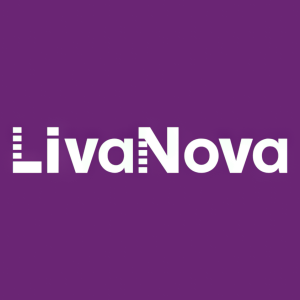LivaNova Initiates Process with U.S. Centers for Medicare and Medicaid Services for Reconsideration of National Coverage for VNS Therapy for Treatment-Resistant Depression
Final critical papers on RECOVER clinical study data accepted, supporting the Company’s submission for coverage reconsideration
Strong 24-month top-line data for RECOVER clinical study demonstrates durability of VNS Therapy
In-depth analysis on suicidality at 12 months yields positive results
Five critical articles featuring outcomes from in-depth data analyses on primary and select secondary endpoints in the RECOVER study have recently been published in or accepted by peer-reviewed journals, and the totality of data presented in these articles serves as the basis of the Company’s request to CMS. The company believes these articles satisfy the Coverage with Evidence Development (CED) requirement of sharing peer-reviewed, publicly accessible results of pre-specified outcomes measured in the RECOVER study. In addition to the five articles, the request for coverage reconsideration includes strong 24-month clinical outcomes from the unipolar cohort of the RECOVER clinical study that demonstrate the substantial retention of benefits and the durability of VNS Therapy over time.
“We have reached an important point in our pursuit to obtain national coverage for VNS Therapy for unipolar patients with depression that is difficult to treat,” said Ahmet Tezel, Ph.D., Chief Innovation Officer of LivaNova. “Our follow-on analyses of the RECOVER unipolar data demonstrate that symptoms alone may not be the sole source upon which to gauge the clinical impact of treatment. Instead, symptoms, function, and quality of life taken together present a more complete picture of treatment effectiveness. We are eager to review this powerful data with CMS during the reconsideration process.”
Final Articles in Critical Series Analyze RECOVER Primary and Select Secondary Endpoint Data
Two new in-depth analyses1,2 on primary and select secondary endpoints in the RECOVER trial have recently been published and a third accepted by peer-reviewed journals. Prior to these articles, two initial articles were published in Brain Stimulation3,4 in December 2024, completing the series of five critical articles in total.
Collectively, the articles highlight the significant unmet need of this markedly ill population with TRD. The RECOVER data demonstrates that VNS Therapy improves symptoms, function, and quality of life in TRD patients over time. These are outcome measures identified as clinically relevant by CMS. Depressive symptoms, daily function, and quality of life taken together, as a novel composite metric, present a more complete picture of treatment effectiveness than symptoms alone. The fifth and final critical publication utilizes this composite metric and demonstrates favorable response to VNS Therapy in TRD patients who had previously failed multiple treatments, including interventional therapies. Researchers found that patients with previous ECT or TMS treatment had statistically significant and clinically meaningful benefits with active VNS Therapy. Notably, VNS Therapy is the only treatment that has demonstrated therapeutic effects in patients who previously failed ECT.
24-Month VNS Therapy Data Show Durability, Increasing Response Across All Outcome Measures
New top-line 24-month data from the RECOVER study show that, across all outcome measures, VNS Therapy patients in the active arm of RECOVER experienced a substantial durability of benefit from month 12 to month 24. Of those patients who at 12 months had achieved clinically meaningful benefit, the median durability of benefit was
Observing all VNS Therapy patients in the active treatment arm of the RECOVER trial from month 12 to month 24, researchers also found improvement in all outcome measures, with the median rate of response, or clinically meaningful benefit, increasing from
“There is no clinical evidence to demonstrate that there are any other therapies, including pharmacotherapies and interventional therapies such as electroconvulsive therapy (ECT) and transcranial magnetic stimulation (TMS), that can claim this profound level of sustained durability and increasing benefit,” said A. John Rush, M.D., Professor Emeritus at Duke-National University of Singapore Medical School who has spent 25 years researching VNS Therapy for TRD and served as Chief Consultant on the RECOVER trial. “These are critical findings that offer hope to treatment-resistant depression patients and their loved ones, who have struggled for years to find effective options. Patients not only stay better – they also continue to get better.”
Improvement in suicidality shows statistically significant separation as early as month three
LivaNova conducted additional in-depth analyses specifically evaluating suicidality for the active treatment arm of RECOVER through the first 12 months of therapy. Using a composite suicidality measure5, results showed an estimated
“The composite suicidality outcome is especially encouraging because we can see a separation between the active and control arms so early in the study,” said Charles Conway, M.D., director of the Washington University Resistant Mood Disorders Center at Washington University School of Medicine in
While not included in the initial submission to CMS, the suicidality data will be provided in detail to the agency upon publication in a peer-reviewed journal.
RECOVER launched in 2019 as part of a CED framework per the CMS NCD process. For the unipolar cohort of RECOVER, enrollment was completed in March 2023, and the 12-month follow-up for those patients was completed in March 2024. No new safety issues were identified in the study.
About RECOVER
LivaNova’s VNS Therapy™ System has been approved for the treatment of depression since earning CE Mark in 2001 and premarket approval (PMA) from the
The largest randomized clinical study of its kind, RECOVER is examining up to 1,000 patients ages 18 or older who have unipolar or bipolar depression that is difficult to treat. A total of 493 adults with at least four documented unsuccessful attempts with antidepressant treatments participated in the unipolar cohort of the RECOVER study. The double-blind, randomized controlled study is assessing how VNS Therapy can offer patients relief from their depressive symptoms and improve quality of life. It is being carried out at up to 100 leading hospitals and medical centers across
About VNS Therapy for Depression
The VNS Therapy™ System, Symmetry™, is
References
- Conway CR, et al. An examination of symptoms, function, and quality of life as conjoint clinical outcome domains for treatment-resistant depression. Journal of Mood & Anxiety Disorders. April 14, 2025. DOI: 10.1016/j.xjmad.2025.100121.
- Sackeim HA, et al. Characterizing the effects of vagus nerve stimulation on symptom improvement in markedly treatment-resistant major depressive disorder: A RECOVER trial report. July 1, 2025. DOI: 10.1016/j.jad.2025.03.124
- Conway CR, et al. Vagus nerve stimulation in treatment-resistant depression: A one-year, randomized, sham-controlled trial. Brain Stimulation. Dec. 18, 2024. DOI: 10.1016/j.brs.2024.12.1191.
- Rush AJ, et al. Effects of vagus nerve stimulation on daily function and quality of life in markedly treatment-resistant major depression: Findings from a one-year, randomized, sham-controlled trial. Brain Stimulation. Dec. 18, 2024. DOI: 10.1016/j.brs.2024.12.1187.
- The composite suicidality metric was created by adding a suicidality-specific question from each of MADRS, Quick Inventory of Depressive Symptomology–Self Report, or QIDS-SR, and Quick Inventory of Depressive Symptomology–Clinical, or QIDS-C.
About LivaNova
LivaNova PLC is a global medical technology company built on nearly five decades of experience and a relentless commitment to provide hope for patients and their families through medical technologies, delivering life-changing solutions in select neurological and cardiac conditions. Headquartered in
Safe Harbor Statement
This news release contains “forward-looking statements” concerning the Company’s goals, beliefs, expectations, strategies, objectives, plans, underlying assumptions, and other statements that are not necessarily based on historical facts. These statements include, but are not limited to, statements regarding the RECOVER study, the VNS Therapy™ System, Symmetry™, and the likelihood that the Company is successful in obtaining national Medicare coverage for its VNS Therapy™ System. Actual events may differ materially from those indicated in our forward-looking statements as a result of various factors, including those factors set forth in Item 1A of the Company’s most recent Annual Report on Form 10-K, as supplemented by any risk factors contained in Quarterly Reports on Form 10-Q and Current Reports on Form 8-K. LivaNova undertakes no obligation to update the information contained in this press release to reflect subsequently occurring events or circumstances.
View source version on businesswire.com: https://www.businesswire.com/news/home/20250604572918/en/
LivaNova Investor Relations and Media Contacts
+1 281-895-2382
Briana Gotlin
VP, Investor Relations
InvestorRelations@livanova.com
Deanna Wilke
VP, Corporate Communications
Corporate.Communications@livanova.com
Source: LivaNova PLC






